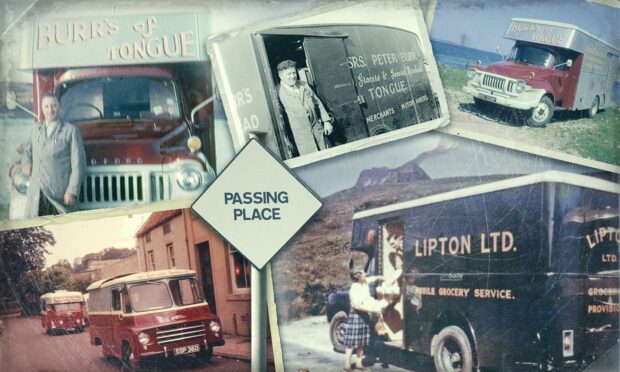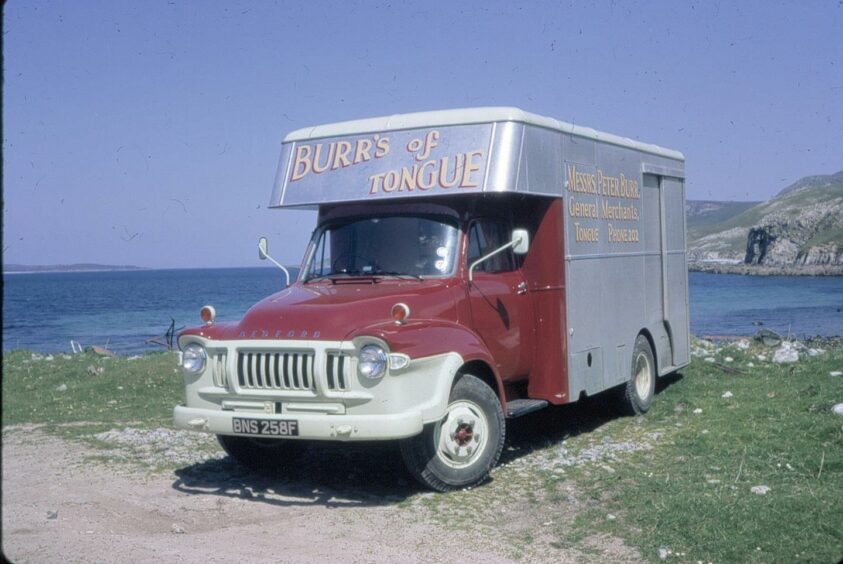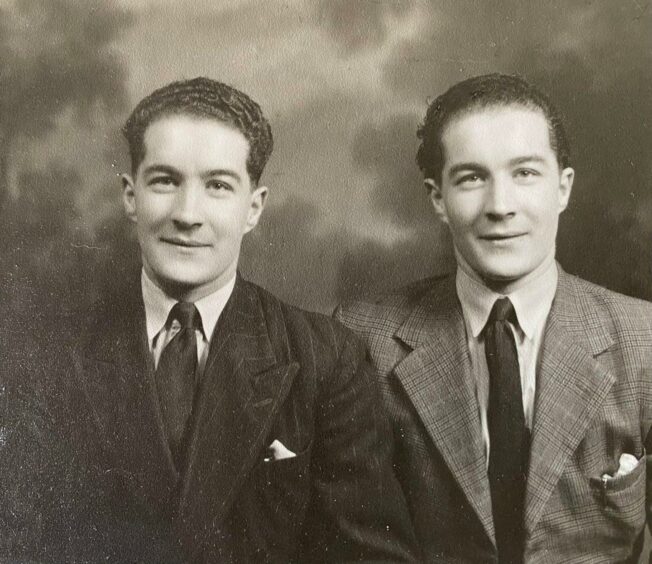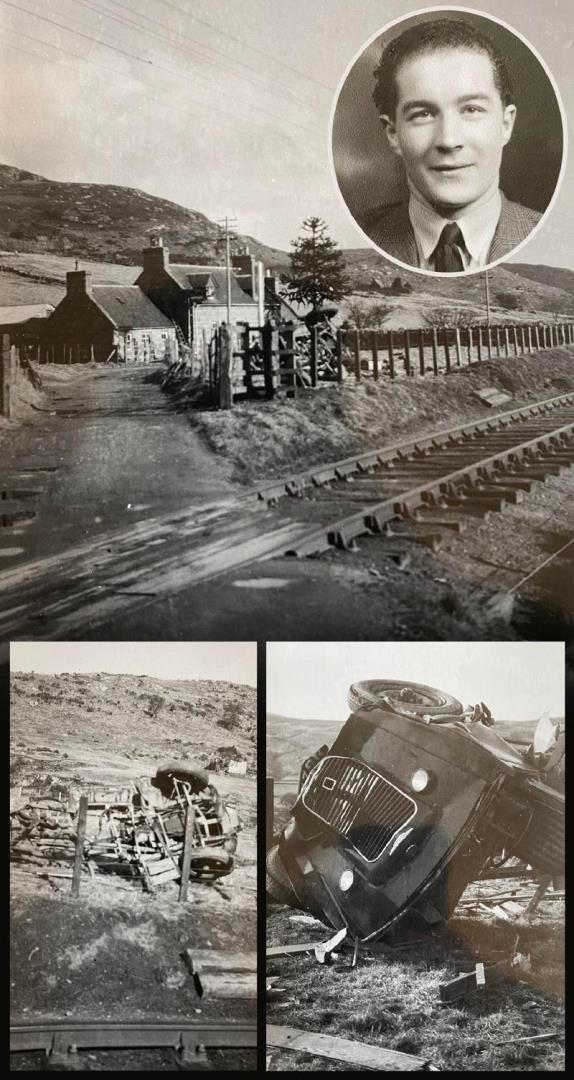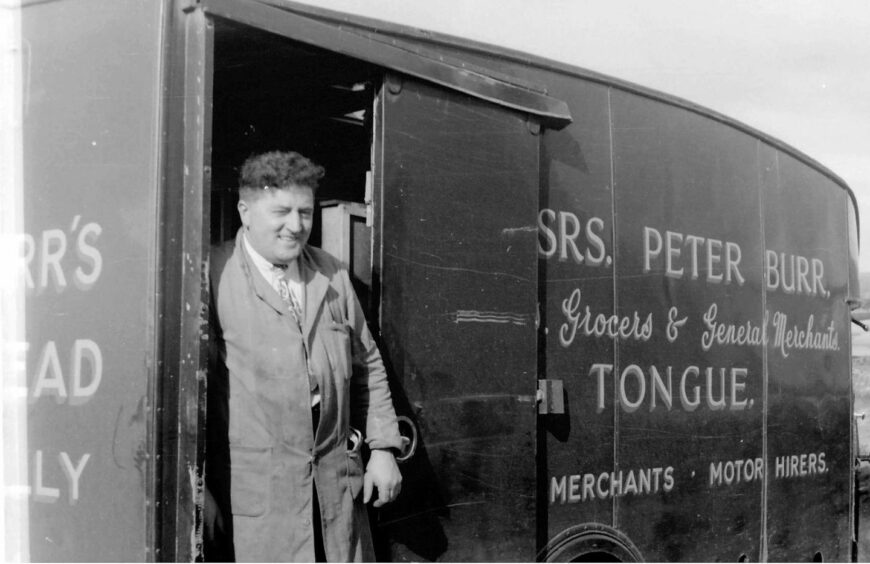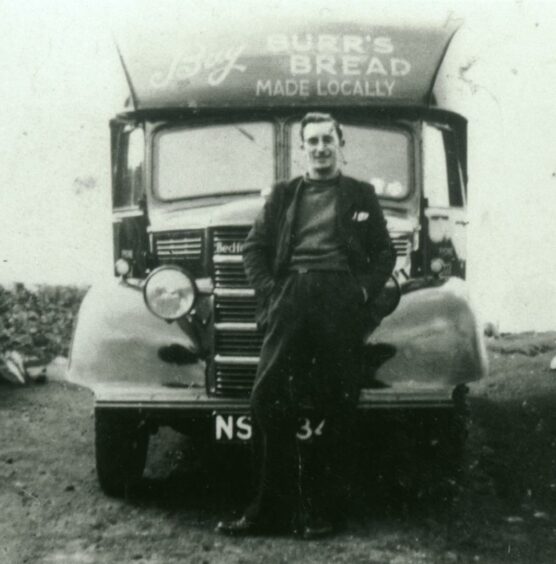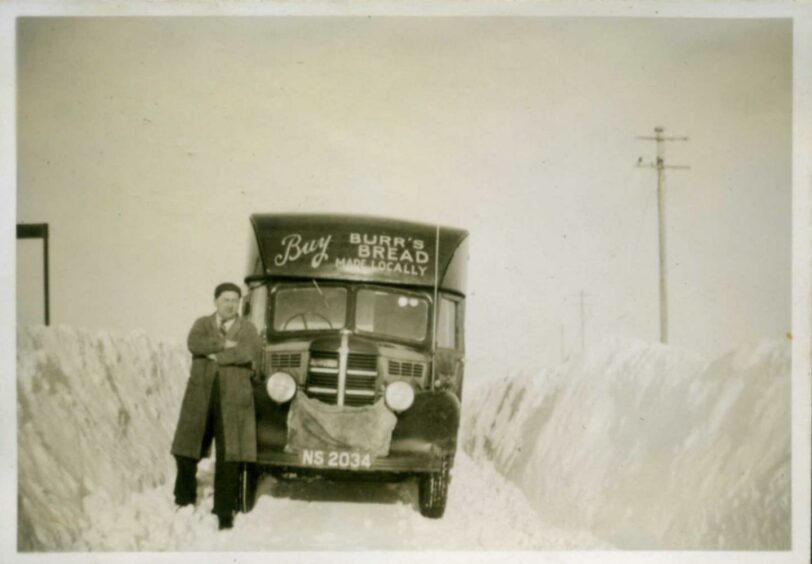They were an institution, a lifeline, and Facebook and Twitter rolled into one.
Mobile shops were one of the most treasured aspects of rural life before most families had cars.
Often it was several miles to the shops.
In the Highlands there were vans from Liptons, Wilsons, Burrs of Tongue, Morrisons of Golspie, the Co-op, Norco, Grant’s of Golspie, Macdonald the Shop… the list is extensive.
Those who remember them in their heyday can still recite the name of the shop, the driver and the goods they carried; and the days they used to come round are imprinted in their memories like writing through a stick of rock.
The vans were the equivalent of social media, bringing all the news and gossip of the parish.
Everyone has a story about mobile shops
The drivers used to collect eggs during their round too, a valuable source of income for many crofts.
Such was their importance and impact on country life that everyone has a story about them.
Aleta Shaw’s dad used to be on the Lipton’s van during the war.
“He told me the loaves were kept on the top shelf.
“He handed a lady from Kildonan a loaf.
“She went into the house and came out and threw it at him.
“He hadn’t noticed the van roof was leaking and the loaf was wet.”
Jacqueline Ross’s grandad drove a van too, and she used to join him on his rounds.
“He sat me on the engine cover at the front of the van and then every lady that came for her shopping bought me juice and crisps.
“Grandchild happy and profits increased.”
Van days were happy days, says Marion Sutherland.
“When we went all the way from Golspie to Navidale to stay at our granny and granda’s, we loved the Co-op van coming round.
“We could spend our holiday cash on Hendry’s lemonade or cremola foam.”
Accidents do happen
Sometimes things didn’t go well for the driver.
John Grant’s van was hit by a train on a level crossing at Rovie in Rogart in around 1950, but the outcome was miraculous.
He and his twin Bill often manned the van for the family’s shop, run by their father, Ian Grant.
John’s daughter Mairi Grant remembers the van incident well.
“No idea how Dad survived it- there was a sheet of metal between the driver’s seat and the main van.
“Everything behind that seat was destroyed but the front remained intact.
“Dad was thrown clear and was grand after a few days of being stuck in his bed.”
Hugh Macdonell Matheson shares fond memories of the grocery vans from Bonar Bridge and Ardgay in his book Life and Sins of a Crofter’s Son.
Fond memories
“Mam took as many eggs as she could to the grocery vans to pay for things she bought, necessities like bread, tea, sugar, baking powders, rennet for making crowdie, salt and pepper but never luxuries like candy or toffee which she made herself.
“There were only two types of bread came out on the van.
“My favourite was Plain and still to this day, but because there is less demand for it the loaves tend to sit on the shelves longer and is not always fresh.
“They carried just about everything you needed which was just as well because there was no public transport to get you to the village.”
If the driver had a fondness for a dram or two, it could spell disaster in the days before drink-driving legislation was introduced in 1967.
A small libation was partaken
Hugh went on: “One of the van drivers that I remember of was always referred to as ‘Jimmy The Van’.
“He was fond of the dram and often would not arrive at our house until all hours of the night and my mother would have to stay up to get her messages, in other words shopping.
“One night he arrived on foot having put the van in the ditch which was not an uncommon thing.
“When Dad went along to near Coneas Bridge to see if they could get it out it was on its side with a terrible mess inside.
“Crates of eggs all broken, bags of flour bust and bottles of this or that smashed.
“Rosy our horse would sometimes be used to get the van back on the road.”
Days of horse and gig
The van was the natural progression from the days of horse and gig, remembered by John Macdonald, author of Rogart: The Story of a Sutherland Crofting Parish.
He said: “Liptons, Davids from Lairg and Geordie Sutherland from Golspie who used to round with a horse and gig, then he got a van, and he would be collecting eggs.
“He was the school janitor for many years in Golspie.
“Morrison the Baker’s van used to come from Golspie, then there was a van from Bonar, the Kyle Bakery and the Co-op van.
“At first Rogart Co-op and when it closed around 1956, the van came from Golspie for a few years. The van driver for a long time was Willie Mackay Inchomney. (Willie the Co-op)
“Then there was Urqhuart the butcher from Lairg, Gordon Leed was the van man.
War time rationing
“During the war when someone would complain about the meagre allocation and ask for a bit more meat, the response was always an abrupt ‘you got your ration’.
“Robert Grant’s butcher’s van came from Golspie, they served the parish for many years, right into the nineties as did Angus Munro from Lairg with groceries, both still do special order.
“Prior to the Co-op, Macdonald the Shop had a van as well, Hugh Macleod drove it. Donnie Macdonald remembers when his father used to get him to drive the van down to the station to collect their wares from the goods shed, he would load them up then his father would come down and drive it back.
“Macleod the policeman got to hear of this and there was a warning given, but things still went on.
“The mobile shops which served the people once the district shop had gone out of fashion have also succumbed to the modern age, although Willie Munro from Lairg keeps up a personal service for his band of faithful customers.
“The last regular van to serve the parish as we went into a new millennium is that of Hector Cameron from Lairg who comes round once a week with his fish van.”
You might also enjoy:
Charles Alexander of Aberdeen: Legendary truck yard forged a place in workers’ hearts
John Lennon’s son Julian told mum Cynthia that his dead grandfather saved him in Highland car crash
Tilleys, Rayburns and dipping ink: Memories of a 1950s childhood in Sutherland
